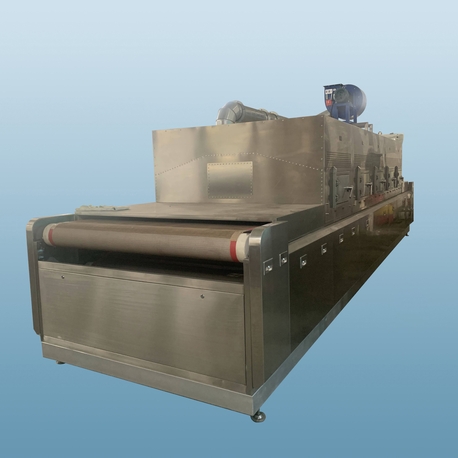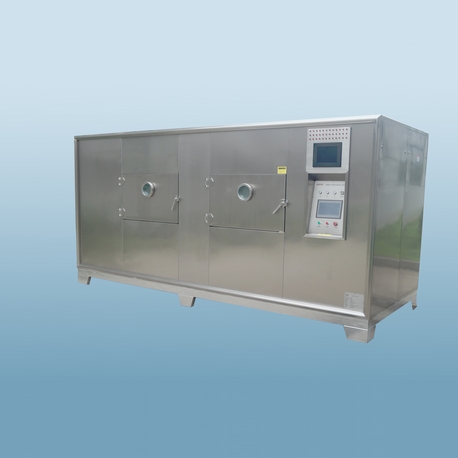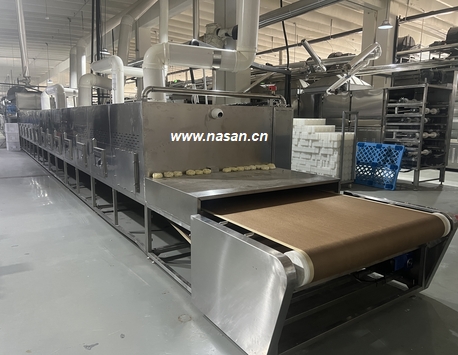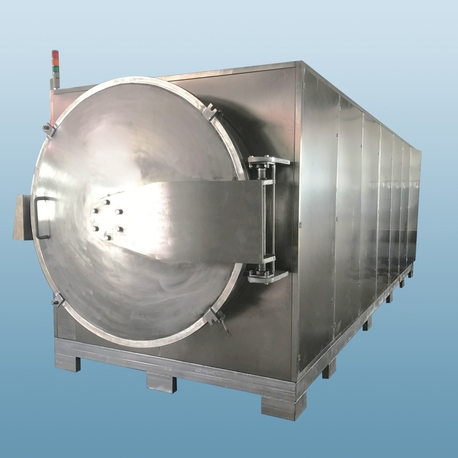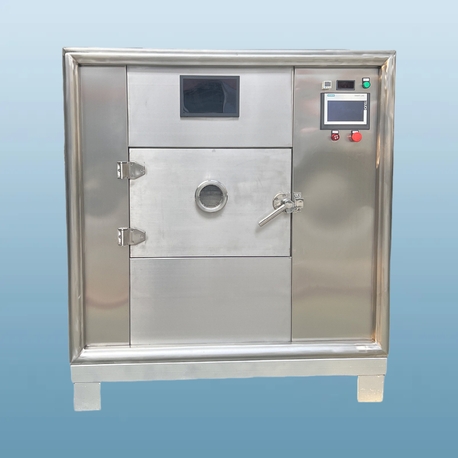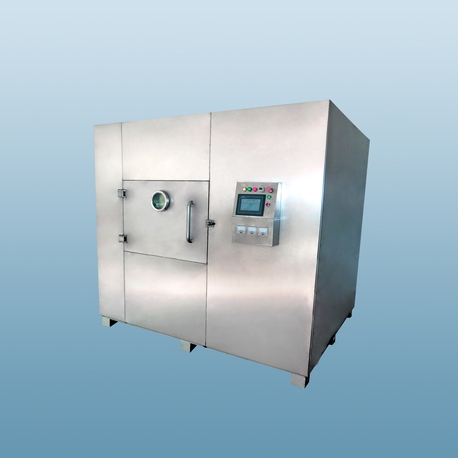In today's health-conscious and sustainability-driven world, preserving the natural goodness of fruits has become a priority for many households and industries. A fruit dryer is an essential tool that enables this preservation by removing moisture, thereby extending shelf life while retaining nutrients and flavor. Whether you are a home enthusiast looking to make healthy snacks or a business involved in large-scale food production, understanding the various types of fruit dryer equipment is crucial. This article delves into the different aspects of fruit dryer technology, including fruit dryer machine models, fruit dryer dehydrator units, and fruit dehydration equipment. We will explore the benefits of using an industrial fruit dryer and provide guidance on selecting reliable fruit drying equipment manufacturers. Additionally, we will address common problems users encounter and offer practical solutions. By the end of this read, you will have a thorough understanding of how to leverage fruit dryer systems effectively, ensuring optimal results for your drying needs.
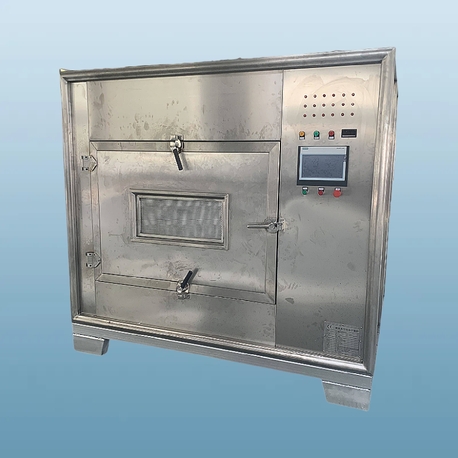
What is a Fruit Dryer and How Does It Work?
A fruit dryer is a device designed to remove moisture from fruits through controlled heating and airflow, effectively preserving them by inhibiting microbial growth. This process, known as dehydration, has been used for centuries, but modern fruit dryer systems have revolutionized it with advanced technology. Essentially, a fruit dryer works by circulating warm air around the fruit, which evaporates the water content without cooking the fruit. This method helps maintain the fruit's nutritional value, color, and taste, making it a popular choice for creating dried snacks, ingredients, or even products for export.
The core components of a fruit dryer machine include a heating element, a fan for airflow, and trays or racks to hold the fruit. In a typical fruit dryer dehydrator, the temperature is set low and slow—usually between 95°F to 165°F (35°C to 74°C)—to ensure even drying without scorching. More advanced fruit dehydration equipment may incorporate features like digital controls, timers, and multiple drying modes to accommodate different fruit types. For instance, an industrial fruit dryer often uses conveyor belts or large chambers to handle high volumes, ensuring efficiency and consistency in commercial settings.
Understanding the mechanics of a fruit dryer is key to maximizing its benefits. By controlling factors like temperature, humidity, and air circulation, users can achieve desired dryness levels, whether for soft, chewy textures or crisp, chip-like results. This versatility makes fruit dryer systems invaluable in both home kitchens and food processing plants. As we proceed, we will examine the specific types of fruit dryer equipment available and how they cater to diverse needs.
Types of Fruit Dryers: From Basic Dehydrators to Advanced Machines
When it comes to fruit dryer options, the market offers a range of models tailored to different applications. The most common types include fruit dryer dehydrator units for home use and more robust fruit dryer machine designs for commercial purposes. A fruit dryer dehydrator is typically compact, affordable, and user-friendly, making it ideal for families or small-scale producers. These units often feature stackable trays and simple controls, allowing users to dry fruits like apples, bananas, and berries with ease. They are energy-efficient and require minimal setup, which contributes to their popularity among health enthusiasts and DIY food preservers.
On the other hand, a fruit dryer machine refers to more sophisticated systems that may include cabinet dryers, tunnel dryers, or solar-assisted models. These are often part of broader fruit dehydration equipment lines used in agricultural or food processing industries. For example, an industrial fruit dryer might employ forced-air technology or heat pumps to handle large batches efficiently, reducing drying time and labor costs. Such equipment is essential for fruit drying equipment manufacturers who supply businesses requiring high throughput, such as juice companies or snack producers.
Another key distinction lies in the energy source: electric fruit dryer models are common, but solar-powered options are gaining traction due to their sustainability. Regardless of the type, all fruit dryer systems aim to achieve uniform drying, which prevents spoilage and ensures quality. When selecting a fruit dryer, consider factors like capacity, energy consumption, and the specific fruits you plan to dry. For instance, a fruit dryer dehydrator with adjustable temperature settings is perfect for delicate fruits, while an industrial fruit dryer with automated controls suits high-volume operations. By understanding these variations, you can choose the right fruit dryer that aligns with your goals, whether for personal use or business growth.
The Role of Fruit Dehydration Equipment in Modern Food Preservation
Fruit dehydration equipment plays a pivotal role in modern food preservation by enabling efficient, scalable, and nutrient-retaining drying processes. This category encompasses a wide array of devices, from simple fruit dryer dehydrator units to complex industrial fruit dryer systems. The primary advantage of using such equipment is its ability to extend the shelf life of fruits without relying on chemical preservatives, making it a natural and healthy alternative. In an era where consumers demand clean labels and sustainable practices, fruit dehydration equipment meets these expectations by minimizing food waste and supporting local agriculture.
In home settings, a fruit dryer allows individuals to preserve seasonal fruits, reducing reliance on store-bought dried products that may contain additives. For example, using a fruit dryer machine to dehydrate excess harvest from gardens can lead to cost savings and healthier eating habits. Commercially, fruit dehydration equipment is indispensable for fruit drying equipment manufacturers who supply the food industry. An industrial fruit dryer, for instance, can process tons of fruit daily, supporting supply chains for snacks, cereals, and ingredient suppliers. This scalability not only boosts economic efficiency but also contributes to global food security by reducing post-harvest losses.
Moreover, advanced fruit dehydration equipment often incorporates technology like humidity sensors and energy recovery systems, which optimize performance and reduce environmental impact. As the demand for dried fruits grows—driven by trends in veganism, hiking snacks, and international trade—the innovation in fruit dryer technology continues to evolve. By investing in reliable fruit dehydration equipment, users can achieve consistent results, whether they are producing small batches for family consumption or large-scale exports. This section highlights how fruit dryer systems are more than just appliances; they are tools for sustainable living and business success.
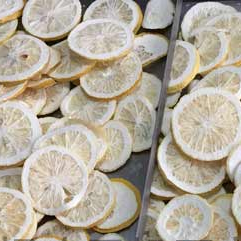
Industrial Fruit Dryer: Scaling Up for Large-Scale Operations
An industrial fruit dryer is designed to meet the high demands of commercial food production, offering enhanced capacity, efficiency, and durability compared to standard models. These systems are a cornerstone of fruit dehydration equipment used in factories, farms, and processing plants, where large volumes of fruit need to be dried quickly and uniformly. Typically, an industrial fruit dryer employs technologies like conveyor belts, fluidized bed dryers, or rotary dryers to handle continuous operations. This allows businesses to process fruits such as mangoes, grapes (for raisins), or citrus peels on a mass scale, ensuring product consistency and quality control.
One of the key benefits of an industrial fruit dryer is its ability to integrate with other machinery, creating automated production lines. For example, fruit drying equipment manufacturers often customize these systems to include pre-treatment stages like washing or slicing, streamlining the entire process. This not only saves time but also reduces labor costs and minimizes human error. Additionally, many industrial fruit dryer units feature energy-efficient designs, such as heat exchangers or solar-assisted heating, which lower operational expenses and support environmental sustainability.
However, operating an industrial fruit dryer requires expertise to maintain optimal conditions, such as temperature and airflow, which can vary based on fruit type and moisture content. Common challenges include uneven drying or equipment maintenance, which we will address later. Despite these hurdles, the ROI from an industrial fruit dryer is significant, as it enables businesses to tap into lucrative markets for dried fruits, ingredients, and value-added products. By partnering with reputable fruit drying equipment manufacturers, companies can acquire tailored solutions that maximize productivity. This section underscores the importance of scaling up with an industrial fruit dryer for anyone involved in agribusiness or food manufacturing, highlighting its role in driving innovation and profitability.
How to Choose the Right Fruit Drying Equipment Manufacturers
Selecting the right fruit drying equipment manufacturers is a critical step in ensuring you get a reliable and efficient fruit dryer that meets your specific needs. With numerous options available, it's essential to evaluate manufacturers based on factors like reputation, product quality, customer support, and customization capabilities. Reputable fruit drying equipment manufacturers often have a proven track record in the industry, offering a range of products from basic fruit dryer dehydrator models to advanced industrial fruit dryer systems. They should provide detailed specifications, warranty coverage, and after-sales services, such as maintenance and spare parts availability.
When researching fruit drying equipment manufacturers, consider their expertise in fruit dehydration equipment technology. Look for companies that use high-quality materials, such as food-grade stainless steel, which ensures durability and hygiene. It's also beneficial to read customer reviews or request case studies to gauge performance in real-world scenarios. For instance, if you need an industrial fruit dryer, choose manufacturers who specialize in large-scale solutions and can offer tailored designs based on your production volume and fruit types.
Another aspect to consider is innovation; top fruit drying equipment manufacturers invest in R&D to improve energy efficiency and user-friendliness. They might incorporate features like smart controls or IoT connectivity in their fruit dryer machine offerings, which can enhance monitoring and reduce operational costs. Additionally, assess their global reach and compliance with international standards, such as ISO certifications, to ensure product safety and reliability.
By taking the time to vet fruit drying equipment manufacturers, you can avoid common pitfalls like equipment failure or inefficiency. This due diligence will pay off in the long run, as a well-chosen fruit dryer can significantly impact your preservation efforts, whether for home use or commercial ventures. In the next section, we will discuss common problems associated with fruit dryer systems and how to address them, further aiding your decision-making process.
Common Problems with Fruit Dryers and Practical Solutions
Despite the efficiency of fruit dryer systems, users often encounter common problems that can affect performance and outcomes. Understanding these issues and their solutions is key to maintaining your fruit dryer and achieving consistent results. One frequent problem is uneven drying, where some pieces of fruit remain moist while others become overly dry. This is often caused by improper loading or inadequate airflow in the fruit dryer machine. To resolve this, ensure that fruit slices are uniform in size and not overcrowded on the trays. Regularly rotating the trays in a fruit dryer dehydrator can also promote even drying.
Another issue is mold or spoilage, which occurs if the drying process is too slow or if humidity levels are high. This is particularly relevant in fruit dehydration equipment that lacks precise humidity control. To prevent this, always pre-treat fruits by blanching or using ascorbic acid dips, and ensure your fruit dryer is operated in a well-ventilated area. For an industrial fruit dryer, investing in models with built-in dehumidifiers can mitigate this risk.
Equipment maintenance is a common challenge, especially for industrial fruit dryer units that undergo heavy use. Problems like clogged filters, fan malfunctions, or heating element failures can lead to downtime. Regular cleaning and inspection, as recommended by fruit drying equipment manufacturers, are essential. For instance, clean the trays and vents after each use, and schedule professional servicing annually.
Energy consumption is another concern, as some fruit dryer models can be power-intensive. Opt for energy-efficient fruit dehydration equipment with insulated chambers or solar options to reduce costs. Lastly, user error, such as incorrect temperature settings, can result in poor-quality dried fruits. Always refer to the manual for specific fruit guidelines and consider using a fruit dryer with automated settings for better accuracy.
By addressing these common problems proactively, you can extend the lifespan of your fruit dryer and enjoy optimal performance. This knowledge is invaluable whether you're using a simple fruit dryer dehydrator at home or managing an industrial fruit dryer in a factory setting.
In summary, a fruit dryer is a versatile and invaluable tool for preserving fruits, offering benefits that span from health and convenience to economic and environmental sustainability. Whether you opt for a basic fruit dryer dehydrator or a sophisticated industrial fruit dryer, understanding the different types of fruit dehydration equipment is crucial for making informed decisions. By selecting reliable fruit drying equipment manufacturers, you can ensure that your investment pays off in terms of durability, efficiency, and performance.
The common problems associated with fruit dryer systems, such as uneven drying or maintenance issues, are manageable with proper care and knowledge. As technology advances, we can expect even more innovations in fruit dryer machine designs, making them more accessible and effective for users worldwide. Ultimately, integrating a fruit dryer into your routine or operations can lead to reduced food waste, healthier eating habits, and new business opportunities.
We hope this comprehensive overview has provided you with valuable insights into the world of fruit dryer technology. By applying this knowledge, you can harness the full potential of fruit dehydration equipment to meet your preservation goals. Thank you for reading, and we encourage you to explore further and share your experiences with fruit dryer systems.



